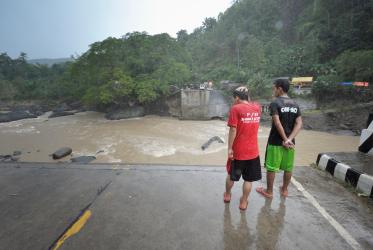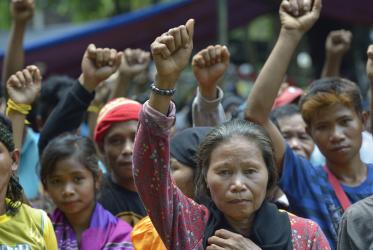Displaying 1 - 20 of 24
WCC offers prayer during Japanese peace conference
11 March 2021
Christians in China warmly receive WCC delegation
12 January 2018
WCC delegation visits China
04 January 2018
New Executive Committee members elected in Trondheim
28 June 2016






